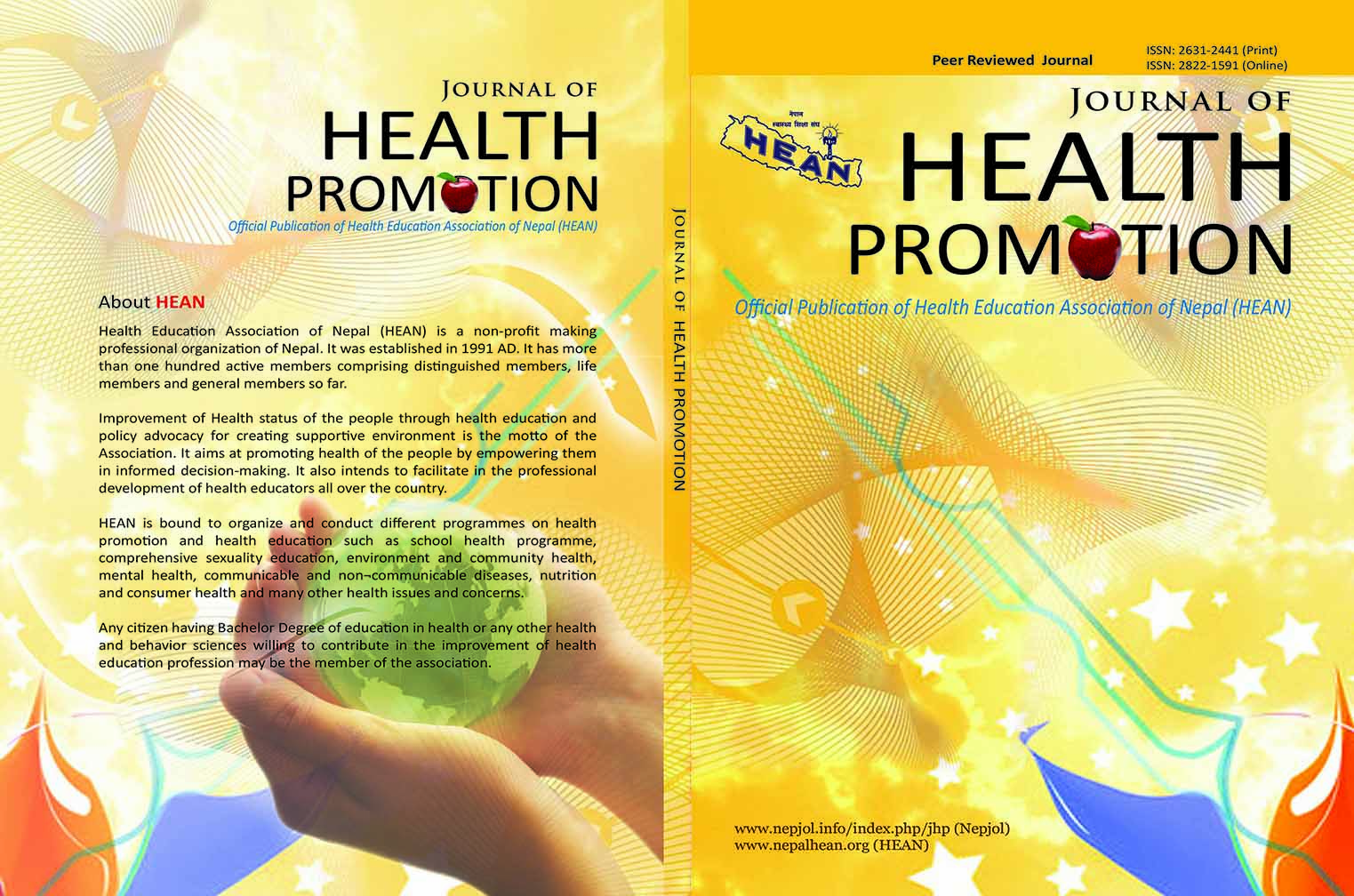Multi-level Barriers for Utilization of Youth Friendly Reproductive Health Services (YFRHS) among Youths
DOI:
https://doi.org/10.3126/jhp.v8i0.32989Keywords:
Youth-friendly services, multi-level barriers, youths, utilization, mixed methodAbstract
The present study aims to examine the multi-level barriers to utilize by the youth-friendly reproductive health services (YFRHS) among the school-going youths of the Surkhet valley of Nepal. This study is based on the sequential explanatory research design under mixed-method research. The quantitative data were collected using the self- administered questionnaire from the 249 youths, aged between the 15-24 years, those selected by using random sampling. The qualitative data were collected using the Focus Group Discussions (FGDs) from the 12 participants who were selected purposively. The study confirmed that school-going youths do not have appropriate utilization of YFHS due to multi-layered barriers. However, the utilization of the service was higher among females, those the older age group, studying in the upper classes, the upper castes, and married youths. The key findings and themes are recognized as multi-layered barriers including personal-level, health system-level, community-level, and policy-level on the entire socio-ecological field. Among them, the existing health system is the foremost barrier. Multi-level interventions are, therefore, required to increase the YFRHS utilization and improve concerns for school-going-youths.
Downloads
Downloads
Published
How to Cite
Issue
Section
License
© Health Education Association of Nepal (HEAN)
Authors are required to transfer their copyright to the Health Education Association of Nepal (HEAN).
The materials of this publication may be reproduced, reviewed and translated, acknowledging the source "Journal of Health Promotion".




